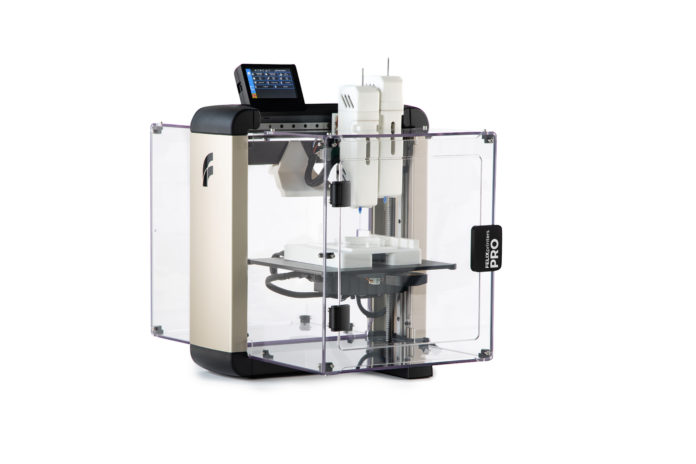Currently valued at $965 million, the global 3D bioprinting market would grow at a CAGR of nearly 20% up to the mid -2020s. This growth would be the result of increased healthcare demands, and the increased demand in organ donation and tissue repair.
In this vein, Bioprinting is one of the technologies that would play a crucial role in delivering customized patient-specific healthcare solutions. Therefore, players that have understood the future prospects of this market are currently paving the way to the next generation solution that will be leveraged by specialists.
FELIXprinters, a Dutch manufacturer of FDM 3D Printers, has understood this market and has been developing a BIOprinter for the last couple of months. Unveiled at Formnext 2019 for the first time and at the 3D medical printing conference held by Jakajima in the Netherlands, the manufacturer announces that the device is already available for commercialization, and pre-orders are already being processed.
FELIXprinters has built its reputation upon the Pro 3, Pro L, and Pro XL platforms, which are used by a wide range of industry sectors for challenging AM production applications.
Designed for medical, scientific, and research applications, the printer integrates key features such as syringe cooling, print bed cooling and heating, a dual head system, easy syringe positioning (ergonomic access to the machine supports researchers in their work), and automatic bed levelling.
According to the manufacturer, the FELIX BIO is appropriate for all types of bio-printing research, and is equipped with strong motors that can extrude a range of different viscosity of materials. Furthermore, it can easily be upgraded, which means that the lifecycle of the machine can be extended without compromising quality, reliability, and productivity.
Wilgo Feliksdal, Co-Founder of FELIXprinters says, “The BIOprinter has been designed to be the ultimate bio research instrument in a cost-effective package. It has been developed alongside the brightest minds in the bioprinting sector, and we partnered with training4crm and the Technical University of Denmark (DTU), and received funding from the European Union Horizon 2020 Programme to develop the BIOprinter. Uniquely, the BIOprinter combines dual sterilizable printheads which have a modular design for easy changeovers, and separate heads are available to print different bio-inks at the same time. This integrates different material properties into a single scaffold structure.”
Remember, you can post free of charge job opportunities in the AM Industry on 3D ADEPT Media or look for a job via our job board. Make sure to follow us on our social networks and subscribe to our weekly newsletter : Facebook, Twitter, LinkedIn & Instagram ! If you want to be featured in the next issue of our digital magazine or if you hear a story that needs to be heard, make sure to send it to contact@3dadept.com.


